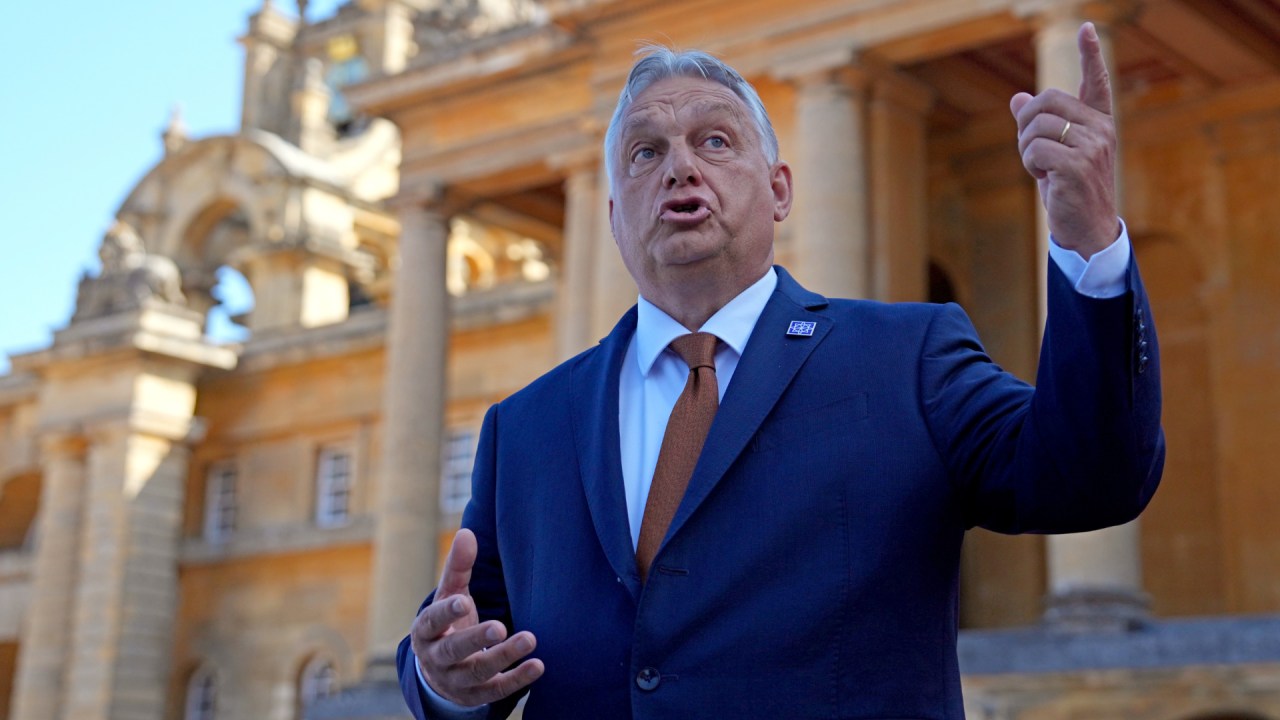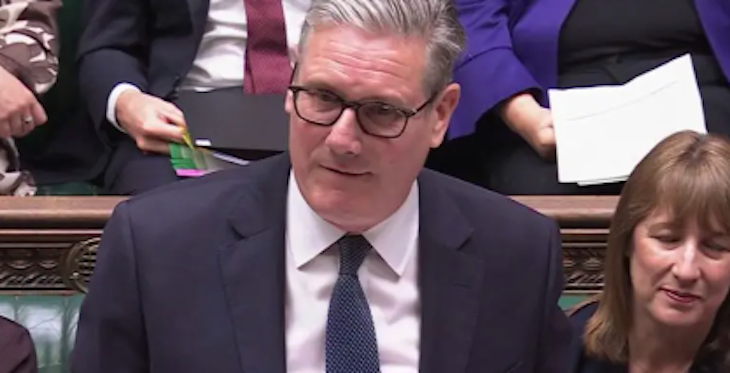Hungary is no stranger to spats with its European neighbours. Under prime minister Viktor Orbán’s leadership, it has exercised veto rights to block Ukrainian military aid and Russian sanctions, delayed the Nato accessions of Sweden and Finland and shrugged off EU asylum regulations. For Budapest, the disputes have proven to be effective leverage in unfreezing funds — once €30million (£25 million), now some €22million (£19 million) — held by the Commission over rule of law violations and corruption concerns. For the EU, Hungary is a diplomatic headache – and one that may be about to get worse.
When Hungary assumed the bloc’s rotating presidency last month, Orbán flew to Moscow for talks with Putin on Ukrainian settlements and bilateral relations, prompting uproar in Brussels. EU leaders took to social media to condemn the trip. Kaja Kallas, the incoming EU foreign policy chief accused Orbán of ‘exploiting EU presidency to sow confusion’. But that didn’t deter Orbán from his self-described ‘peace mission 3.0’; three days later, he went to Beijing to meet Chinese leader Xi Jinping.
While these visits sparked uproar, a quiet change to immigration policy that Hungary has made is likely to be more problematic for Europe. Since July, Hungary widened its lax National Card scheme to include citizens from Russia and Belarus. Holders of such card are granted the right to work in Hungary — and freedom to roam across the wider Schengen area — with, reportedly, minimal security clearance.
Holders of the National Card are granted the freedom to roam across the wider Schengen area with, reportedly, minimal security clearance
This quiet change only came to the attention of Hungary’s neighbours last week when Manfred Weber, chair of European People’s Party, wrote to European Council president Charles Michel warning it may ‘create grave loopholes for espionage activities … posing a serious risk to national security’. Orbán’s spokesman branded his letter ‘absurd and hypocritical’ as he hailed Hungary’s immigration control the ’strictest in the European Union’.
But concerns have only widened in Europe. Lithuania’s foreign minister Gabrielius Landsbergis requested the European Commission assess the threats to the integrity of the Schengen area. Michael Stübgen, German state interior minster, called for controls on Hungarian borders. The EU’s home affairs commissioner demanded Budapest answers her security concerns by 19 August. On Tuesday, 67 MEPs rallied in a letter to Ursula von der Leyen, asking for strict measures should Hungary refuse a rollback on its visa policy change.
Are their concerns justified? ‘Absolutely’, former Estonian president Toomas Hendrik Ilves tells me. ‘We just have too many cases of Russian diplomats and spies wandering through Europe’. Sabotage efforts, believed to be conducted by Russian proxies, such as the arson attack in a Lithuanian IKEA store in May or the vandalism of an Estonian minister’s car from December last year, would likely increase. Letting unchecked Russian and Belarusian citizens roam the Schengen area could, too, thwart efforts of eastern nations that have bolstered up defences against the recent uptick in Kremlin-backed hybrid warfare.
Poland has constructed a 115-mile border wall with Belarus and has granted patrols immunity to use firearms, if necessary, to deter an uptick in crossings after a Polish soldier was stabbed to death by a migrant. There are fears that this surge in numbers is being orchestrated by the Kremlin and Minsk regimes. Finland witnessed similar pressure after 1,300 migrants crossed their border with Russia since last summer, prompting emergency powers for guards to push back individuals.
So what should be done? Ilves suggests Europe is being too slow in responding to the threat. Weber, in his letter to Michel, said Hungary’s new rules should be discussed at the next leaders’ summit in October. ‘This is untenable, we can’t be doing this. These identity cards have been issued since July and we don’t know who’s coming across our borders’, he says.
In Ilves’s eyes, Hungary is a ‘nuisance country’ and has no place in the bloc. ‘I don’t know why they’re there. If your rhetoric is anti-EU, you block otherwise unanimous positions on part of the Union, then all you want is money’. He points to the EU’s failure – due to Hungary’s veto – in issuing a unified statement concerning ‘flaws and irregularities’ in Venezuela’s recent election. ‘That’s going so far afield that in no way impinges on Hungarian national interests. We’re basically looking at a Putin proxy’, he claims.
Invoking Article 7 – which would suspend EU membership rights, including voting – is a possibility, but an unlikely one. It would require unanimity among all member states. When it was previously tried against Poland and Hungary, in 2017 and 2018, both proceedings fell short of majority support. More realistically, however, Hungary could face suspension from the Schengen, a suggestion offered to the president of the EU commission Ursula von der Leyen in the letter from 67 concerned MEPs. But given that there are 720 MEPs, it means less than ten per cent of the sitting European Parliament has backed that approach. And with Hungary holding the rotating presidency until the end of the year, any punitive action against Budapest is harder still. It seems Orbán may have chosen a prime time to push his own agenda – and exhibit the EU’s self-impeding bureaucracy.









Comments